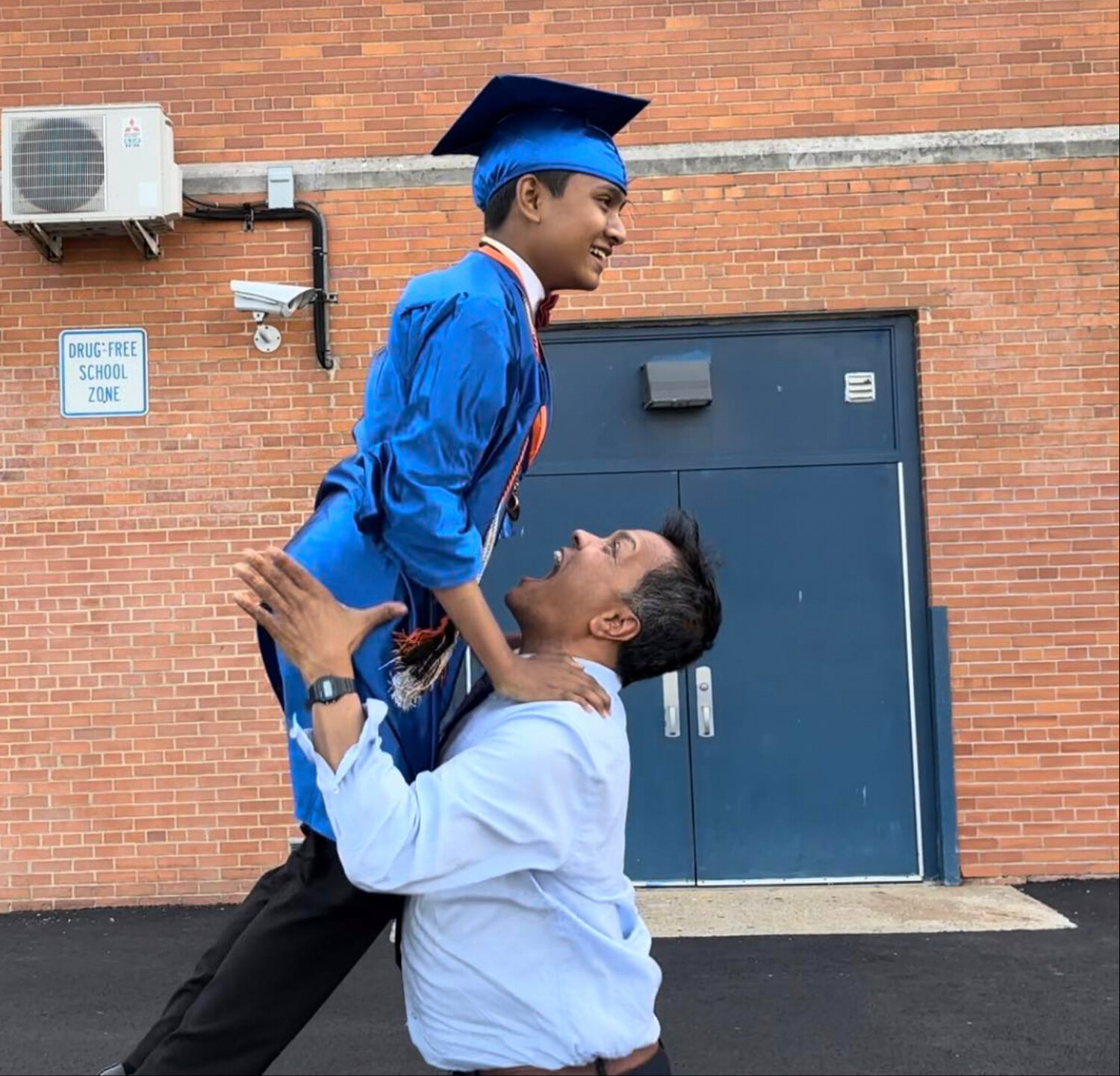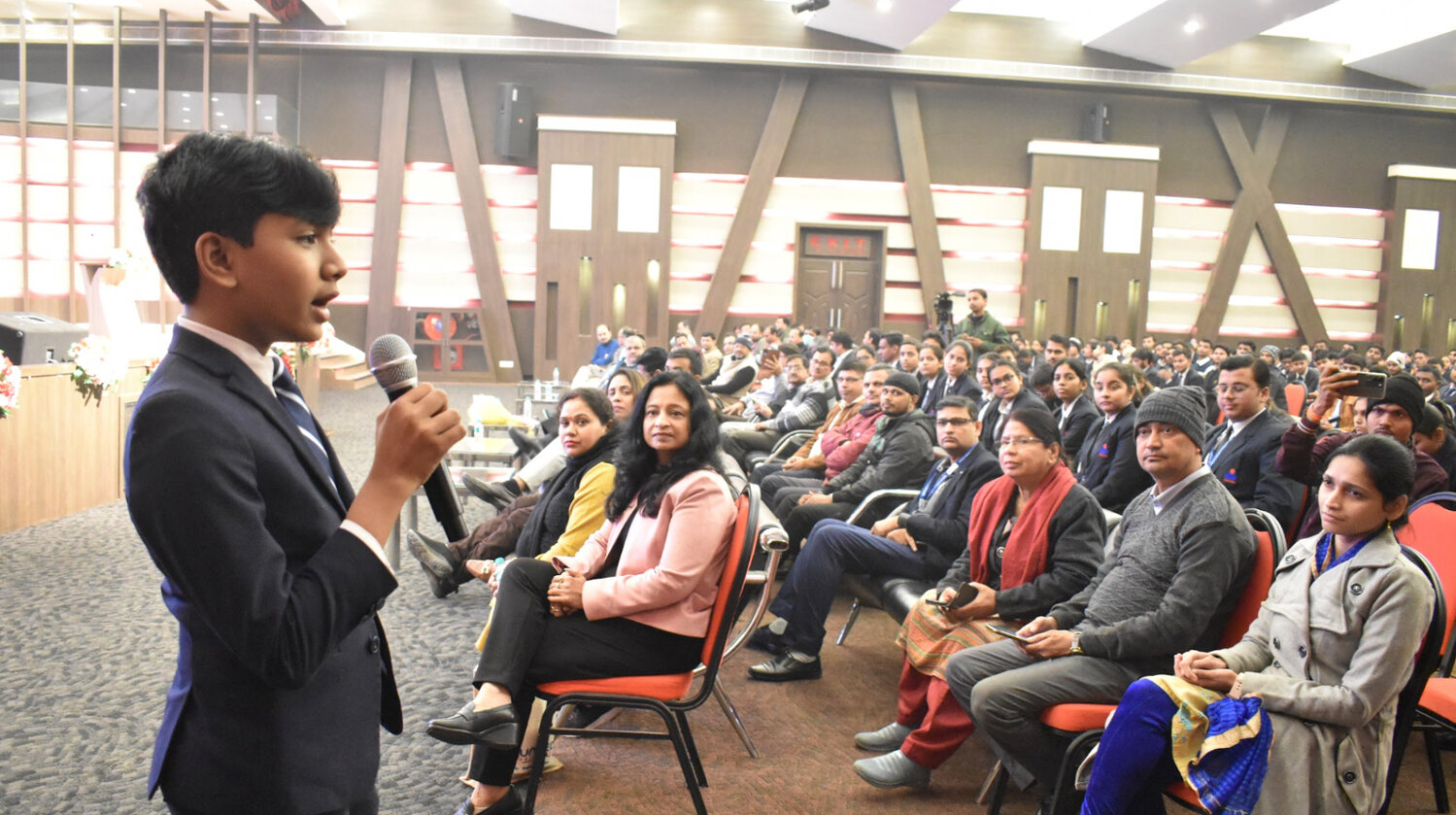Suborno Bari, 12, is Malverne's youngest-ever graduate
Suborno Bari is like any other kid, and he’s not. He likes playing games, and sharing memes with his friends — and mastering the intricacies of physics and calculus. At age 12, he is the youngest person ever to graduate from Malverne High School.
Suborno was 1½ when his parents, Rashidul Bari and his wife, Shaheda, who are originally from Southeast Asia, realized that he was different. Much like their oldest son, Refath, Suborno had a gift for math far beyond his age. The Baris weren’t shocked when Suborno spoke early, or quickly took to simple addition. But what’s a parent supposed to do when teaching their 18-month-old 1 plus 1, and he asks what n plus n is?
“It was intimidating for my wife, saying, ‘There is no way a 1½-year-old is challenging me with math,’” Rashidul recalled. “It was intimidating for me when he was 4, asking me calculus questions, trying to solve from the calculus book he found at home.”
At that point, the Baris decided they needed some help. Professors from universities like Columbia started reaching out, asking Rashidul — who is a doctoral candidate at Columbia and a physics teacher at Brooklyn Technical High School — to bring young Suborno in.
By age 7, he was a regular guest lecturer at colleges across the world, including Mumbai University.
“There are these abstract approaches, which connect so beautifully with real life,” Suborno said. “Especially when you have these elegant problems that are not, ‘oh, solve this polynomial’ or something like that. When you have these problems that take dozens of steps, where each step has to be thought out carefully, you have to plan out what’s ahead and what’s behind.”
The Baris moved from the Bronx to Malverne in 2020, where, Rashidul said, the people — neighbors, teachers, school district administrators — made all the difference. Within a week of their arrival, Rashidul said, neighbors were going out of their way to help the Baris, despite the fact that they were total strangers.
It was Rachel Yudine, principal of Davison Avenue Intermediate School, who discovered the extent of Suborno’s capabilities. She tested the then fourth-grader, and found that his reading level was that of a high school senior, and his math skills were far beyond. She recommended that he skip directly to his senior year of high school.
“Only in America this is possible,” Rashidul said. “In no other country is it truly possible, because there are massive barriers, and … you’re not going to find a Dr. Yudine or other people to remove those barriers. It’s really only possible in America.”
Even though his intellect surpassed that of many adults, however, the fact remained that Suborno was still a child. His social and emotional health was just as important to his parents as his intellectual growth. So they struck a compromise: Suborno split his school day between Davison, where he could continue to play with his friends, and Howard T. Herber Middle School, where he had more academic stimulation. And after he found he had a much easier time interacting with older classmates than he had anticipated, he eventually skipped to 12th grade. At age 10, Suborno was taking classes with those eight years his senior.
“I was very naive back then,” the 12-year-old said of his 10-year-old self. “I thought there wasn’t anything to be desired from high school, that there was no high school experience to be had, because I haven’t watched any of those TV shows, or that one thing from Disney — the ‘High School Musical’? I didn’t have any idea of what to expect.”
What he wasn’t expecting at Malverne High was the depth of relationships to be had — that he could form meaningful social connections and enjoy the extracurriculars the school had to offer.
“My teachers were so supportive, and more importantly, I think those classmates and people really were so supportive and allowed me to develop in a way that wasn’t harmful,” Suborno said. “And I think that being able to talk to them like a normal human being, instead of someone to be pointed at, was really what helped me adapt, and it’s what helped me academically advance just as much as the studying that I did at home.”
He was taking college courses at the same time, and continues to do so this summer. Multivariable calculus, linear algebra, ordinary differential equations, real analysis — you name it, and he has mastered it at Stony Brook University, Hunter College, Brooklyn College, the New York City College of Technology, or the City College of New York.
When Suborno can’t be bothered to solve a math equation, he said, he enjoys much lighter pastimes — like talking with his brother, playing chess and contemplating his existence.
“All that matters is that your brain gets some time to rest,” he said. “Because, I mean, at some point your muscles are going to get strained, no matter how much you enjoy working out. It’s the same thing with your brain.”
Earlier this year, when he was still 11, Suborno was accepted by New York University. He’ll start classes next month. And, much like his father, he hopes to teach math or physics.
“Physics is just that beautiful connection, that bridge, between mathematics and real life — using mathematics to describe our real world,” he said. “And it couldn’t be more beautiful or more efficient. Because, I mean, physicists are humans, too. They’re not masochists who work all day in their evil lairs. They want to make things easy for themselves and others in the outside world to understand. They not only do things, but optimize them.”









